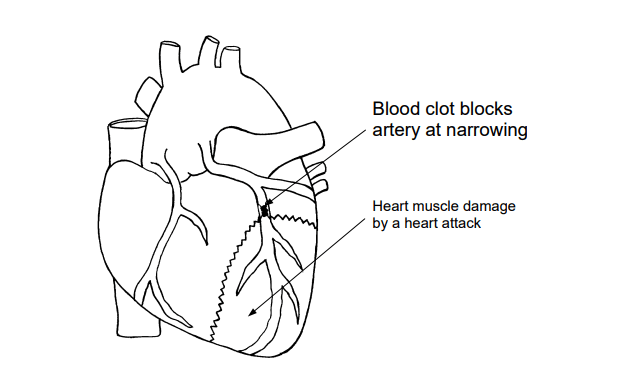
Heart attack signs and symptoms
A heart attack occurs when blood is unable to flow through your heart because an artery is blocked by a blood clot. This starves the heart of oxygen and kills cells in the heart muscle. That’s why it’s important to detect a heart attack early. Also called an myocardial infarction, a heart attack can happen to anyone, with or without a previous history of heart disease. Unfortunately, heart attack signs and symptoms vary significantly from person to person. Some people may experience pain in their neck and shoulder, while others become nauseous and light-headed.
Knowing all the different signs of a heart attack will help you know what to look for, and take quick action if you think you, or someone near you is experiencing a heart attack. Watch this short video with Dr. Craig Ainsworth, director of the Cardiac Care Unit at Hamilton General Hospital, to learn the signs of a heart attack, and what to do if they strike.
Heart attack signs
A heart attack can occur without warning as you’re resting, increasing activity, or feeling emotional stress. If these symptoms are serious and last for more than a few minutes without getting better, it’s important to get help immediately.
 Chest discomfort such as pressure, squeezing, fullness, pain, burning or heaviness
Chest discomfort such as pressure, squeezing, fullness, pain, burning or heaviness- Upper body discomfort in the neck, jaw, shoulder, arms or back
- Tingling or numbness
- Nausea and vomiting
- Dizziness
- Sweating
- Shortness of breath
- Feeling of the heart pounding
- Indigestion
- Feeling faint or anxious
Diagnosing a heart attack
Some people are more prone to a heart attack than others, depending on age and other factors that increase your risk of cardiovascular disease. If you know you’re at risk, have a list of your medications by the phone so you’re able to share it with paramedics in case of an emergency. Once you get to the hospital, you may be given medications to dissolve the blood clot blocking the artery. Doctors can use an electrocardiogram test (ECG), blood tests, or a description of your symptoms to diagnose a heart attack.
After a heart attack
Following your heart attack, your damaged muscle will start to heal. It’s important to rest your body and only slowly start to perform activities as advised by your doctor. Your doctor may recommend medications and lifestyle changes to help you recover and promote good health.
Follow these steps if you think you, or someone near you is having a heart attack:
- Call 9-1-1
- Stop all activity and sit or lay down
- If you have nitroglycerin take your prescribed dose
- Take Aspirin. Chew and swallow one 325mg or two 81mg tablets
- Rest and wait. Stay calm and wait for help to arrive
For more information about your heart, our Heart Manual touches on heart disease, risk factors, and other information.
